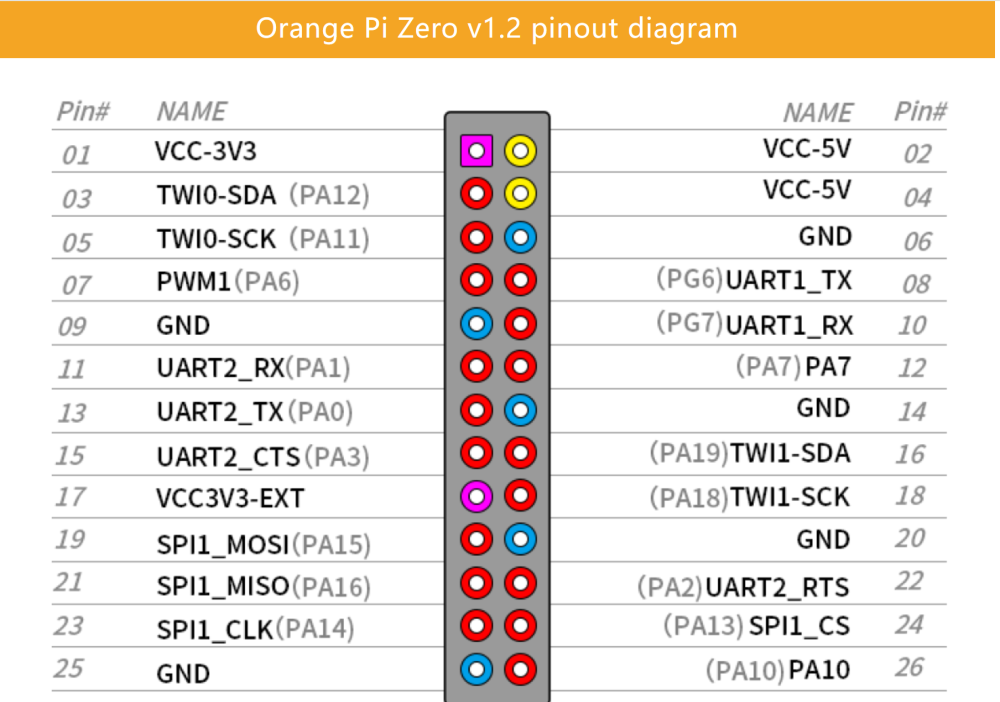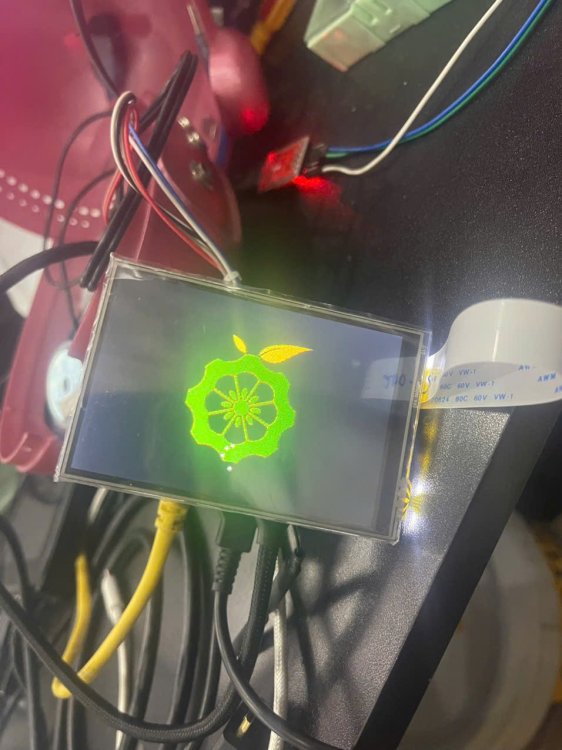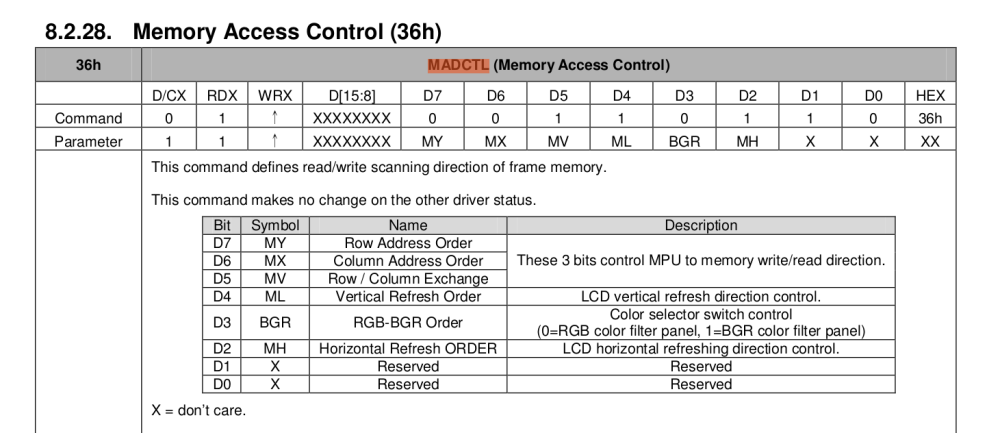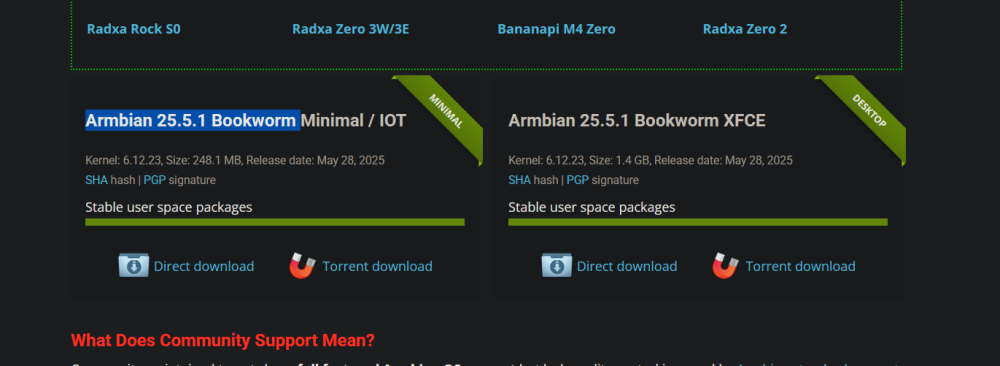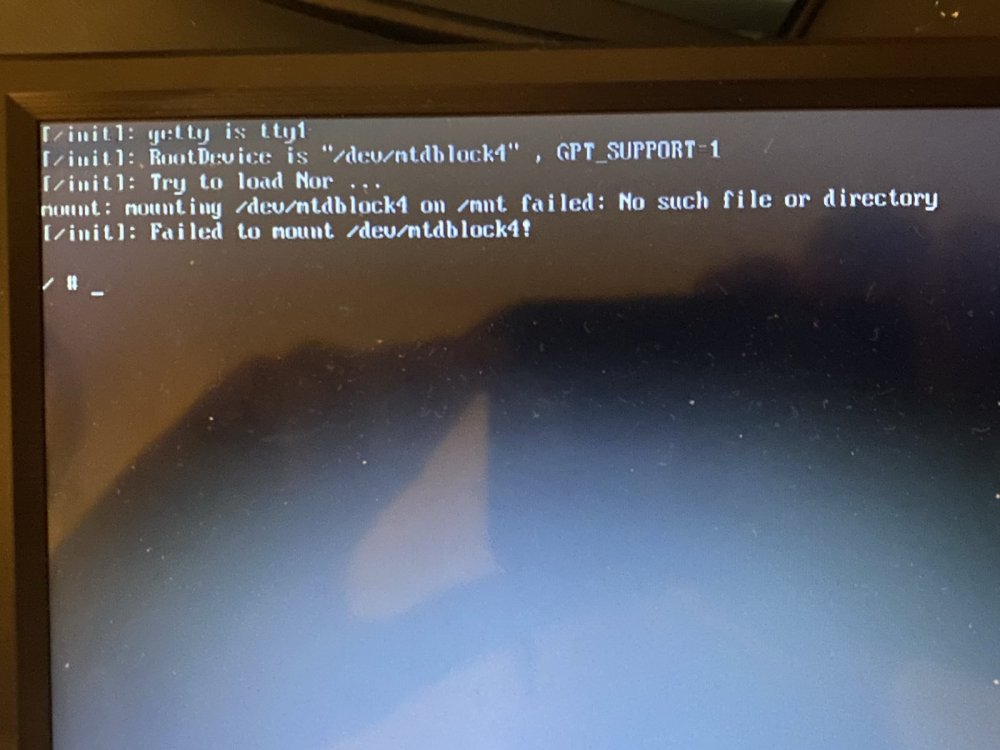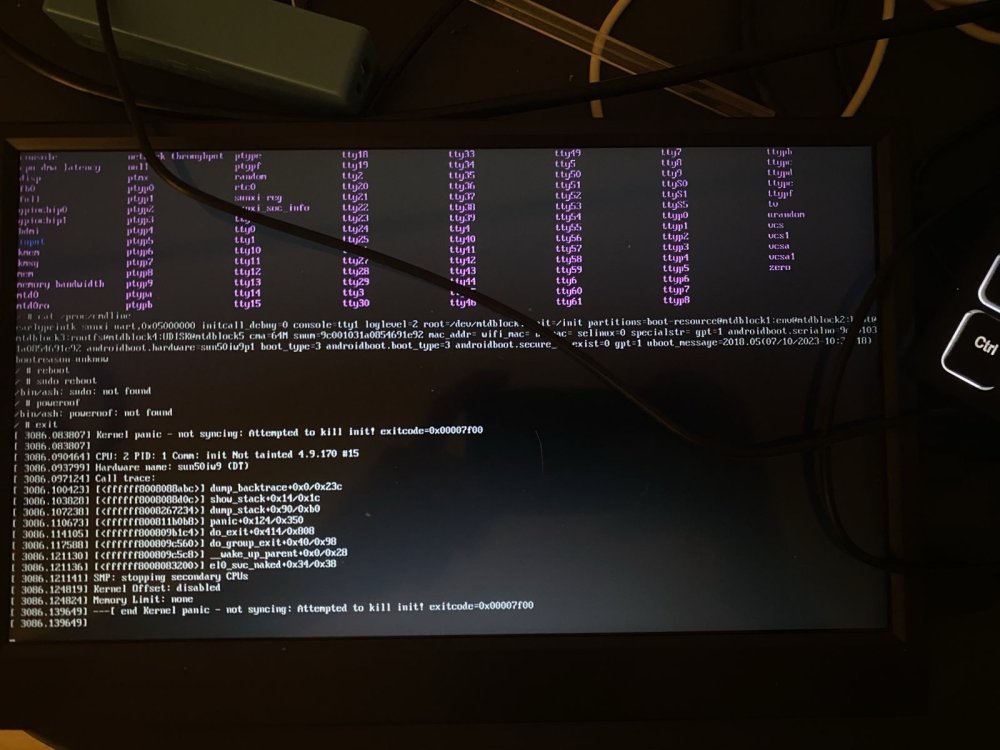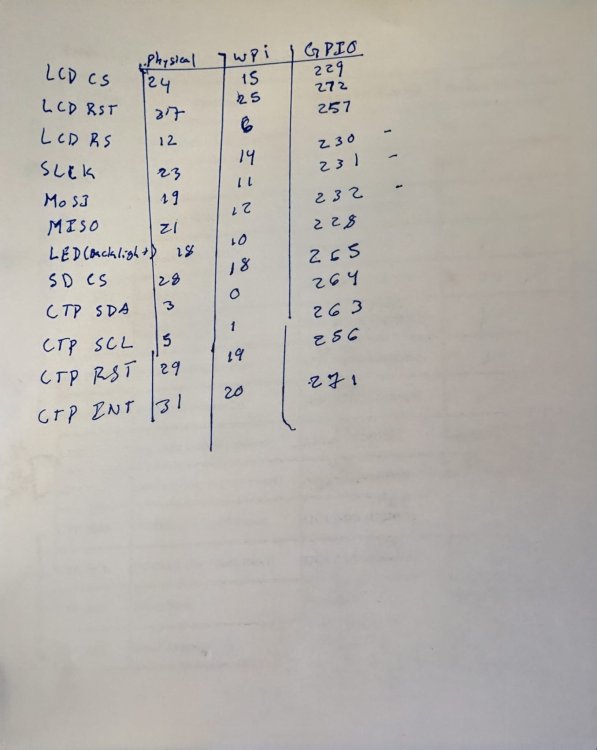Search the Community
Showing results for tags 'orangepizero2w'.
-
the tft is working well on stock orangepi image but when I try the prebuilt armbian images or build it myself it look like this my dts file: 35Lcd.dts
-
After many days spent wondering why is my OPI Zero2w 1.5GB not booting some Armbian images (xfce desktop version for example), I have found there is a "bug" or difference in uboot models 1.5GB + 4GB vs 1GB+2GB. Fix that might work for Zero2w is here https://forum.armbian.com/topic/31654-orange-pi-zero-2w/ (planning to test it soon) Can somebody confirm Opi Zero2W 1.5GB has still this issue with some Armbian images ? Armbian minimal boots without aby issues. Not sure why it works and desktop doesnt.
-
I'm experiencing something unusual. A device of mine, running Armbian, cannot communicate with an Android device in my LAN. Otherwise everything else works. My Orange Pi Zero 2w running Armbian can ping all of my LAN IPs (and access theyre net services also) , but fails at pinging an Android device (which is connected through WiFi): "Destination Host Unreachable". Same goes the other way around where Termux runs on the above mentioned Android 15 device but cannot ping ("Destination Host Unreachable") the host running Armbian or access it via ssh (it simply stalls). Everything else works just fine, all of my devices connect with each other without a glitch; they can all access every other running ssh instance inside the lan (which is a mix of Windows, Linux and Android devices). The very same Orange Pi Zero 2w running Armbian is perfectly accessible via ssh from all other hosts and vice versa. The Android device running Termux is capable of pinging and accessing all other ssh hosts. And there's more; I'm running Wireguard on the Orange Pi and it works fine. it works so good that once I access the lan with the Android Device through Wireguard, I can suddenly ping the Armbian host and ssh login into it. Always using the very same IP address (no dns involved). I wonder where I should look. I cannot imagine what's causing it. Any suggestions? Is this a known scenario? ArmBian Community running on Orange Pi Zero 2w v26.2 rolling for Orange Pi Zero2W running Armbian Linux 6.12.71-current-sunxi64 Packages: Debian stable (trixie) Android 15 running Termux Android REL 15 aarch64 Linux 5.10.236-android12-9-00020 Termux googleplay.2026.02.11 There's no WiFi separation on the router side.
-
Hello. Im trying to configurate and adapt OrangePI Zero 2W board to a custom extension board with multiple RS485 drivers. For now, im trying to configurate a single secondary UART (UART2) to initialize with muxed Rx\Tx pins and in RS485 (with software driven RTS pin). My current DT overlay is: And it is partially works. Works as UART. Able to send and receive data with muxed Rx\Tx. For RTS... its complicated. Seems RTS(PH4 GPIO) are initialized and acquired by UART2 software, and stay low during initial idling. After im trying to send any data (echo 123 >> /dev/ttyS2), RTS goes HIGH and stuck in this state before reboot. Im have tried to send big blob at 9600 and check the RTS with statserial. But as i see, RTS is 1 (active???) from inital to complete and after, and never changes.
-
Alright so I am trying to use this OLED display: https://www.amazon.com/AITRIP-Display-SSD1306-3-3V-5V-Arduino/dp/B08JPYJ35Y?th=1 with Armbian(minimal) on my orange pi zero 2w, but I just cant get the i2c1 bus to detect it. Here's some more details: uname -r returns: 6.12.23-current-sunxi64 cat /boot/armbianEnv.txt returns: verbosity=1 bootlogo=false console=both disp_mode=1920x1080p60 overlay_prefix=sun50i-h616 rootdev=UUID=adb61282-df86-4116-9688-e94c56913687 rootfstype=ext4 overlays=i2c0-pi i2c1-pi param_i2c1_pin_sda=3 param_i2c1_pin_scl=5 user_overlays= usbstoragequirks=0x2537:0x1066:u,0x2537:0x1068:u sudo i2cdetect -l returns: i2c-0 i2c DesignWare HDMI I2C adapter i2c-1 i2c mv64xxx_i2c adapter I2C adapter i2c-2 i2c mv64xxx_i2c adapter I2C adapter i2c-3 i2c mv64xxx_i2c adapter I2C adapter i2c-4 i2c mv64xxx_i2c adapter I2C adapter sudo i2cdetect -y 1 returns: 0 1 2 3 4 5 6 7 8 9 a b c d e f 00: -- -- -- -- -- -- -- -- 10: -- -- -- -- -- -- -- -- -- -- -- -- -- -- -- -- 20: -- -- -- -- -- -- -- -- -- -- -- -- -- -- -- -- 30: -- -- -- -- -- -- UU -- -- -- -- -- -- -- -- -- 40: -- -- -- -- -- -- -- -- -- -- -- -- -- -- -- -- 50: -- -- -- -- -- -- -- -- -- -- -- -- -- -- -- -- 60: -- -- -- -- -- -- -- -- -- -- -- -- -- -- -- -- 70: -- -- -- -- -- -- -- -- Here's a picture of the display: Here's a picture of the pin layout: VCC is going to 3.3v, GND to GND, SDA to pin 3, and SCK to pin 5 Thanks! Feel free to ask for more details!
-
Hardware: Board: Orange Pi Zero 2W (Allwinner H618) Audio Module: MAX98357A (I2S) Connections: BCLK → PI13 (Pin 7) LRC/WS → PI14 (Pin 16) DIN → PI15 (Pin 31) 5V/GND → Properly connected Software: Armbian Version: 25.5.0-trunk.147 (nightly) Kernel: 6.6.75-current-sunxi64 Configuration: /boot/armbianEnv.txt: overlay_prefix=sun50i-h618 overlays=i2s param_i2s=on Problem: No sound output via MAX98357A. aplay -l returns "no soundcards found". dmesg | grep i2s shows no output, indicating the I2S driver is not loaded. Missing I2S overlay: Checked /boot/dtb/allwinner/overlay/ — no sun50i-h618-i2s.dtbo (only I2C overlays are present). Loaded sound modules: Only snd_soc_hdmi_codec (HDMI audio). Steps Taken: Verified physical wiring (BCLK/LRC/DIN, 5V/GND). Updated to the latest nightly build (25.5.0-trunk.147). Added overlays=i2s, param_i2s=on to /boot/armbianEnv.txt. Tried manual driver load: modprobe sun8i-i2s (no effect). Questions: Is I2S support for Allwinner H618 available in kernel 6.6.75? Are there plans to add sun50i-h618-i2s.dtbo in future releases? Is there a workaround to enable I2S on H618 (e.g., custom DTB)? Would upgrading to kernel 6.7+ resolve this? Diagnostics: uname -a: Linux orangepizero2w 6.6.75-current-sunxi64 #1 SMP Sat Feb 1 17:37:57 UTC 2025 aarch64 GNU/Linux cat /etc/armbian-release: VERSION=25.5.0-trunk.147 BRANCH=current BOARD=orangepizero2w dmesg | grep -i i2s: No output. Request: Any guidance or patches to enable I2S on H618 would be greatly appreciated. Thank you!
-
Hi All First post here. Have been using Rpi Zero 2W for a couple of years in various installations and other then speed been happy with it. So got an Orange Pi Zero 2 W in an attempt to use it as a plug in replacement for the Rpi. Installed Armbian and other than a booting issue, it all works. The first obstacle is the i2c, it is obvious that is nowhere near as easy as a Rpi to set up. I have read many posts and get more confused as the days go on. So, the question: Is there a step by step instruction on how to enable I2C. I am connecting 2 x ADS1115 A2D converters, one at &H48 and the 2nd at &H49. When I use i2cdetect -l i2c-0 i2c DesignWare HDMI i2c-1 i2c mv64xxx_i2c Adapter i2c-2 i2c ditto When I use i2cdetect -y 0 &h30 and &h50 show up When I use i2cdetect -y 1 I get UU on &h36 In software, I can do a fd = i2c_open("/dev/i2c-0") or use i2c-1 rc = i2cselect (fd,&h48,0) BUT, I cannot write or read to the device.(obviously because it does not exist according to i2cdetect ) My armbianEnv.txt has overlays=i2c3 changed from i2c0 after reading some posts. dtparam i2c_arm=on In armbian-config /system/kernel/booto001/ I have ticked i2c0-pi and for 2 and 3 as well. So after all that I have no idea how to proceed. Regards EDIT: kern.log has repeated entries as follows: mv64xxx_i2c 5002000 Error applying settings reverse things back
-
Hello! I am trying to get the cedar_ve device working for OPIZ2W. I am currently running this image: Orangepizero2w_1.0.4_ubuntu_noble_server_linux6.1.31 My uname -a: Linux orangepizero2w 6.1.31-sun50iw9 #1.0.4 SMP Wed Oct 9 13:39:53 CST 2024 aarch64 aarch64 aarch64 GNU/Linux To do this I am trying to follow these steps: 1. Modify a dts for OPIZ2W to include cedar_ve. 2. Donwloan cedrus driver and build it. 3. Compile modified ffmpeg with x264cedrus support Have anyone tried this? I have only found builds for recent kernel for the H3 CPU, none for the H618. I am looking for a DTS that supports cedar_ve for Orange Pi Zero 2W or any other things that can point me in the right direction.
-
Hello, I'm new with armbian and I want to generate an image with a specific kernel version. Is it possible? I found the LIB_TAG but it's now deprecated, is there a replacement parameter? Thank you, Guillaume
-
I installed the image https://dl.armbian.com/orangepizero2w/Bookworm_current_minimal on my Orange Pi Zero 2W board. But when I tied to check sound from the headphone interface on the expansion board I have a problem: user@orangepizero2w:~$ aplay -l aplay: device_list:274: no soundcards found... There is no chance to turn it on even through DTB overlay in armbian-config because there is no sound card in there. How to make sound work in this board with Armbian?
-
I am trying to install box86 and possibly box64 on my Orange pi zero 2w. I tried using armbian-gaming as well as following the instructions found here, and attempting to build box86 with both resulted in a gcc error unrecognized command line option '-marm' Upon attempting to build box64 with the instructions, I get a make error 2, and the topmost error is a ccl error unknown value 'loongarch64' for '-march' This seems to be cross-compilation errors, but IDK what steps to take to fix it. Thanks in advance! QuowLord
-
Hi everyone, I have wrong color in screen MPI3501 , when i test to output buffer to color red,green, blue, it seem like Red. —> blue Green —> red Blue. —> green Here is how i test (i need to stop lightdm service before this) (when boot the image should be orange not green) I am using display MPI3501 http://www.lcdwiki.com/3.5inch_RPi_Display which i heard that is a clone of waveshare 3,5 inch https://www.waveshare.com/3.5inch-RPi-LCD-C.htm I'm using Debian Bookworm. I know that it not the same as Armbian, but the config kinda the same. About driver for ili9486, here is the info To use this screen i create overlay-user. and and ili9486.dts. Here is the content of it and I add this overlay to /boot/orangepiEnv.txt Note that i think the field "bgr" and "init" not working, i try to change it to make bgr from 0x00 to 0x01, or send init different at 0x10000036 but nothing change. Also note that, i also try to cat raw data from /dev/fb0 and using ffmpeg --> It is true color Also here is the dmesg log Is anyone here familiar with this problem, or ever try to change bgr field of this ili9486 ? Best Regard !!
-
I am not able to boot from armbian. First I downloaded image from (https://www.armbian.com/orange-pi-zero-2w/) later on I flashed the image with usbimager, then since this didn't work I did with balena etcher, (all those in linux). Balena etcher crashes at verification so then I did with my windows machine, first with usbimager and since it wasn't working I decided to decompress the .xz and do it with "rufus" Here i attach the images and as you guys can see it says "failed to mount /dev/mtdblock4". That terminal is pretty much useless, I can't even do reboot or poweroff. I just need armbian because the official orange pi OS doesn't provide the headers. And I need the headers because if not I can't install drivers for my wifi card. Newer linux distros seems to have compiled on the kernel so that's why i wanted to update, also because I think armbian provides the headers too. Any ideas
-
I made this simple dts file for my GPS NTP server running on Zero2/3 and Zero2w On Zero2, use PC9 as PPS in , and on Zero2W use PI5 . It should be configured in /boot/armbianEnv.txt, but I unsuccess on zero2w, so you must comment out two lines and compile it by yourself. Maybe help someone. sun50i-h616-pps-gpio.dtso
- 3 replies
-
- Orange Pi Zero 2
- Orange Pi Zero 3
-
(and 1 more)
Tagged with:
-
Armbian_community_25.5.0-trunk.538_Orangepizero2w_bookworm_current_6.12.23_minimal.img When try to boot. It get stuck trying to boot from emmc. It does not have emmc. After several power restart sometimes it boots form microsd. also it ask for tags which has only one option "Solved". I had to tag this topic as solved in order to be able to submit it.
-
Hello, I'm trying to connect an PCF8574 I2C adapter to my Orange Pi, but it doesn't show up in i2cdetect, only something at 0x30 on i2c0 and 0x36 on i2c1 that is labeled UU. I tried to connect it to arduino, and it found it on address 0x27 Connected on pins 3 and 5 root@orangepizero2w:~# sudo i2cdetect -y 0 0 1 2 3 4 5 6 7 8 9 a b c d e f 00: -- -- -- -- -- -- -- -- 10: -- -- -- -- -- -- -- -- -- -- -- -- -- -- -- -- 20: -- -- -- -- -- -- -- -- -- -- -- -- -- -- -- -- 30: 30 -- -- -- -- -- -- -- -- -- -- -- -- -- -- -- 40: -- -- -- -- -- -- -- -- -- -- -- -- -- -- -- -- 50: -- -- -- -- -- -- -- -- -- -- -- -- -- -- -- -- 60: -- -- -- -- -- -- -- -- -- -- -- -- -- -- -- -- 70: -- -- -- -- -- -- -- -- root@orangepizero2w:~# sudo i2cdetect -y 1 0 1 2 3 4 5 6 7 8 9 a b c d e f 00: -- -- -- -- -- -- -- -- 10: -- -- -- -- -- -- -- -- -- -- -- -- -- -- -- -- 20: -- -- -- -- -- -- -- -- -- -- -- -- -- -- -- -- 30: -- -- -- -- -- -- UU -- -- -- -- -- -- -- -- -- 40: -- -- -- -- -- -- -- -- -- -- -- -- -- -- -- -- 50: -- -- -- -- -- -- -- -- -- -- -- -- -- -- -- -- 60: -- -- -- -- -- -- -- -- -- -- -- -- -- -- -- -- 70: -- -- -- -- -- -- -- -- root@orangepizero2w:~# ls -a /dev/i2c-* /dev/i2c-0 /dev/i2c-1 /dev/i2c-2 root@orangepizero2w:~# cat /boot/armbianEnv.txt verbosity=1 bootlogo=false console=both disp_mode=1920x1080p60 overlay_prefix=sun50i-h616 overlays=sun50i-h616-i2c1-pi rootdev=UUID=b9606c1d-3dea-4df8-940f-51cd0698eef4 rootfstype=ext4 usbstoragequirks=0x2537:0x1066:u,0x2537:0x1068:u
-
I need some help with this LCD https://www.amazon.com/dp/B0CMD7Y55M?ref=ppx_pop_mob_ap_share, i bought it since i verified whith the always unreliable AI GPT if it would work with my Orange Pi since i want to use the screen in my klipper 3d printer. Now im stuck since the available driver from the manufacturer are only for the Arduino and RP2040. I verified evrywhere and could only find one github but that one did not work for me and there are no tutorials of how to work with this. Does some one have any idea of how to make this run or work?. Just in case my wiring is as follows:
-
Hi, i have an orangepi zero 2w and tried noble gnome image with the "current" kernel (v6.6.x). I activated the gpu via armbian-config and reboot. Then it stucks somewhere in the booting process. It shows nothing on the screen. If i use the orange pi image instead, i can activate the gpu with orangepi-config, which is a similar tool like armbian-config. The gpu works fine then and has great performance. So it's theoretically possible. Can someone explain to me what the problem is here. If it was a simple port, it would surely have already been done. I tried also the dtb from the orange pi image, but then it also didnt boot up. Thanks for all replies. Mike
-
It seems there are no any on-board wifi nodes (vcc33-wifi, vcc-wifi-io, wifi-pwrseq ) in sun50i-h618-orangepi-zero2w.dtb , and exists in Zero 3 dts . zero2w.dts: type_addr_wifi = <0x02>; zero3.dts: type_addr_wifi = <0x02>; zero3.dts: vcc33-wifi { zero3.dts: regulator-name = "vcc33-wifi"; zero3.dts: vcc-wifi-io { zero3.dts: regulator-name = "vcc-wifi-io"; zero3.dts: wifi-pwrseq { zero3.dts: reg_vcc33_wifi = "/vcc33-wifi"; zero3.dts: reg_vcc_wifi_io = "/vcc-wifi-io"; zero3.dts: wifi_pwrseq = "/wifi-pwrseq";
-
Has anyone tried to get a hyperpixel4 screen (GPIO) to work with armbian? Seems easy enough on a raspberry pi but i want to use a orangepi zero 2 and haven't been able to get results. Any help?
-
In case anyone wondering, AW859A / 20U5622 Wi-Fi modules (uwe5622 driver) do not support WPA3. GCMP-128/GCMP-256 are not listed as supported in iw output, SAE or WPA-PSK-SHA256 wpa_supplicant key methods are not recognized as valid. # iw phy Wiphy phy0 wiphy index: 0 max # scan SSIDs: 12 max scan IEs length: 2304 bytes max # sched scan SSIDs: 9 max # match sets: 9 RTS threshold: 2353 Retry short limit: 10 Retry long limit: 9 Coverage class: 0 (up to 0m) Device supports RSN-IBSS. Supported Ciphers: * WEP40 (00-0f-ac:1) * WEP104 (00-0f-ac:5) * TKIP (00-0f-ac:2) * CCMP-128 (00-0f-ac:4) * WPI-SMS4 (00-14-72:1) * CMAC (00-0f-ac:6) * 00-0f-ac:255 Available Antennas: TX 0x1 RX 0x1 Supported interface modes: * IBSS * managed * AP * P2P-client * P2P-GO * P2P-device … > get_capability pairwise CCMP TKIP > get_capability group CCMP TKIP WEP104 WEP40 > get_capability key_mgmt NONE IEEE8021X WPA-EAP WPA-PSK WPA-EAP-SUITE-B OWE DPP FT-PSK FT-EAP > get_capability proto RSN WPA > get_capability auth_alg OPEN SHARED LEAP > get_capability modes IBSS AP
-
- Orange Pi Zero 2
- Orange Pi 3 LTS
-
(and 2 more)
Tagged with:
-
Hello everyone, First timer here. I enabled the wlan0 interface on my Orange Pi zero 2w and am able to connect to the internet. However, I am not able to connect to it via SSH or even ping it, (cannot resolve host). I'm using the minimal image available here: https://www.armbian.com/orange-pi-zero-2w/ I followed the docs to configure wifi as pointed out here: https://docs.armbian.com/User-Guide_Networking/#connecting-to-wifi-network Currently I'm stuck on how to debug it further. I tried to ping other devices from within the orange pi and it works without any issues. Any advice is very much appreciated
-
Hi everyone, I'm new to Orange Pi Zero 2w and Armbian. I'm trying to use the image on the zero2w. Installing on the SD fits and works so far. Unfortunately, there is no image on the screen via the HDMI port. Could it be due to the image? The old OrangePi image with the 5.x kernel works so far. Do you have an idea? Best regards




